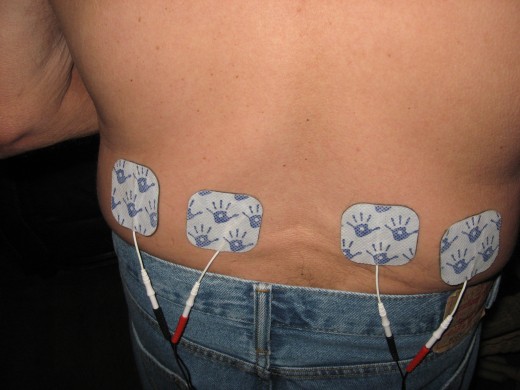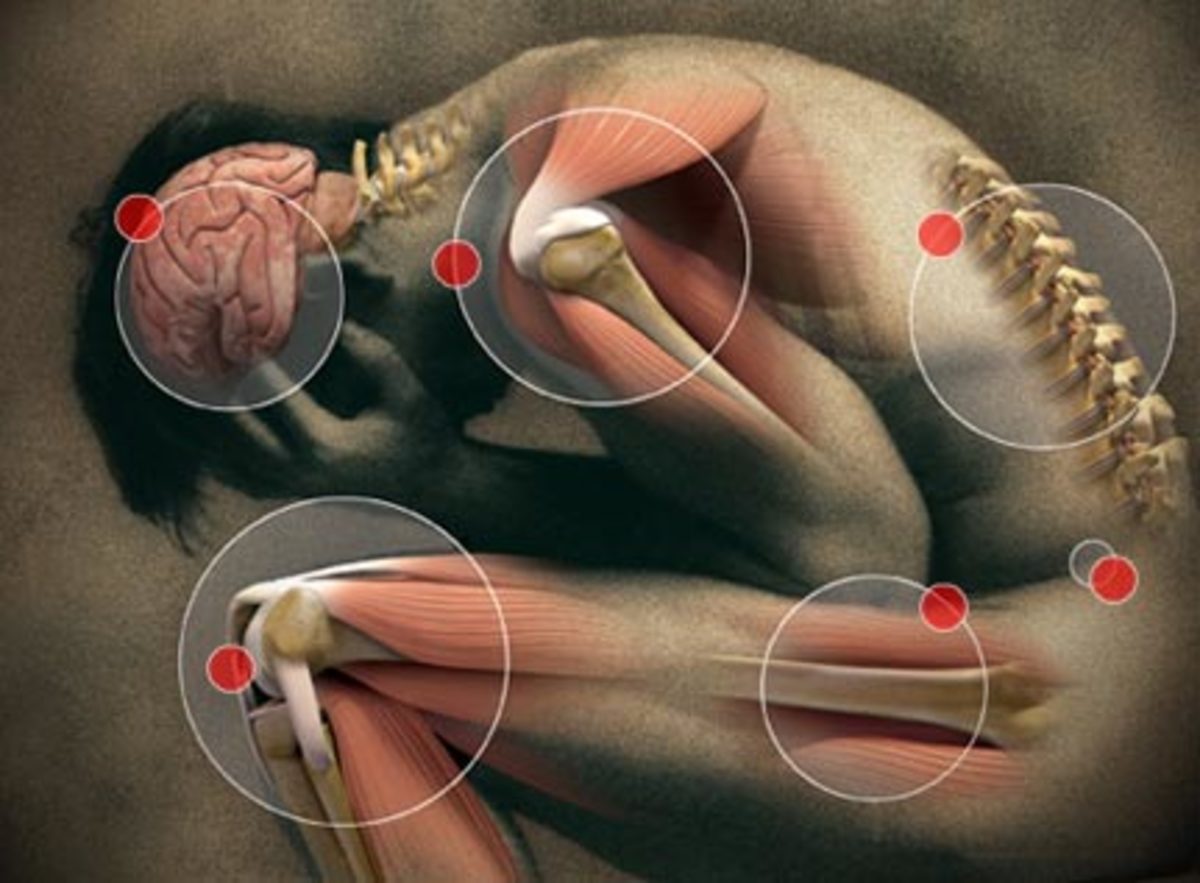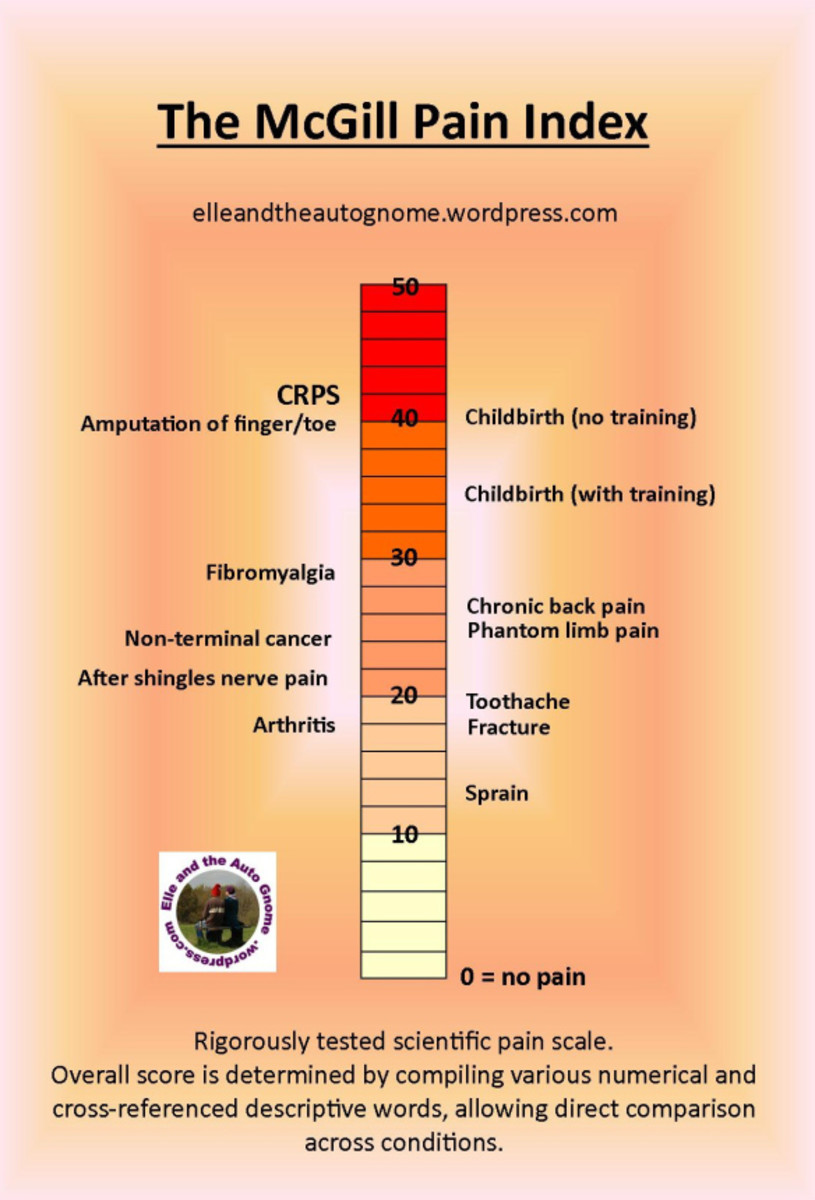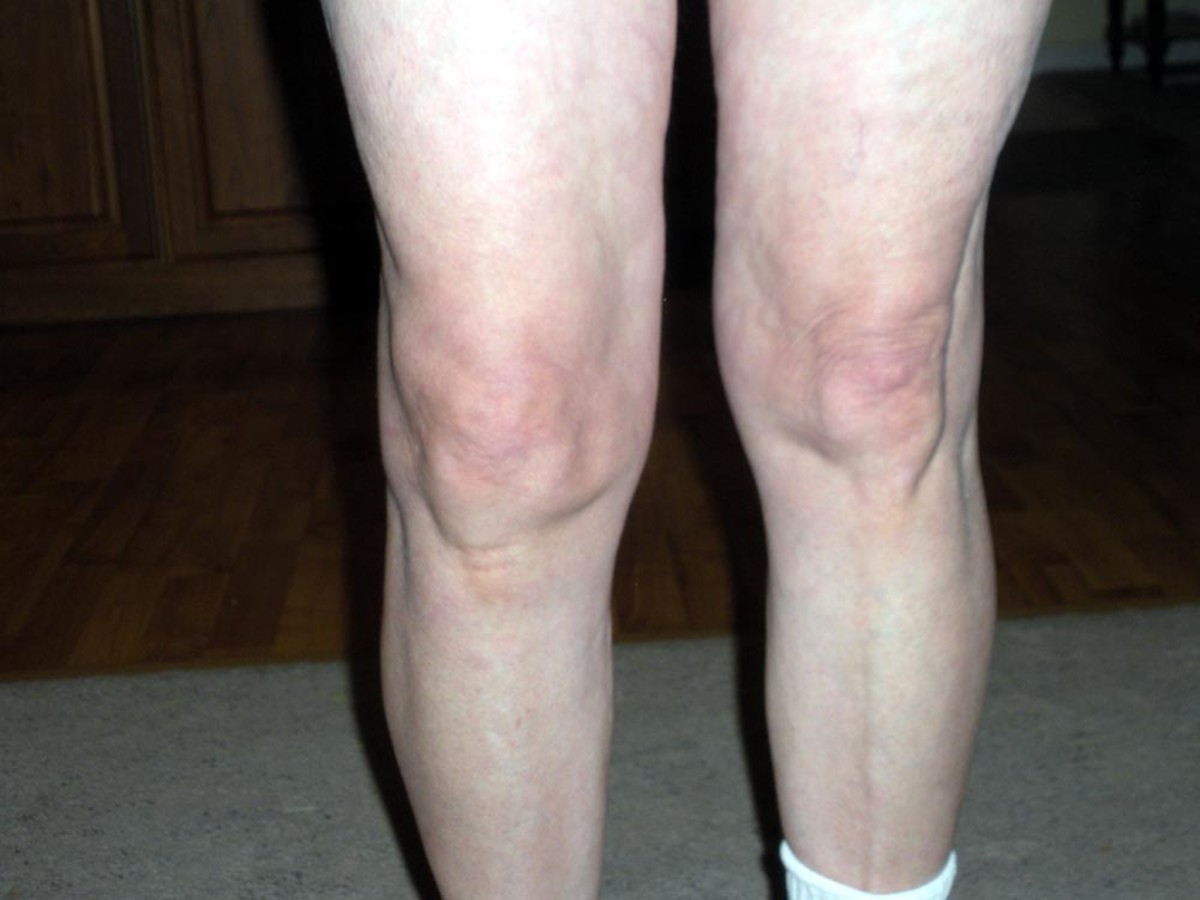Fibromyalgia - Chronic Pain Syndrome

Living With Chronic Pain
If you’re living with chronic pain on a regular basis, with no apparent cause, you might have fibromyalgia. I learned a lot about this condition when I was diagnosed with it several years ago. That was before my doctors and MRIs revealed that I actually had foraminal stenosis. I do, however, have a best friend with fibro. I often think that doctors sometimes diagnose a patient with fibromyalgia when they’re not sure what’s causing the pain. Sometimes called chronic pain syndrome, fibromyalgia affects more women than it does men. It's not considered to be dangerous or harmful to the body, but it can certainly be hard to deal with from those suffering with the condition. Even more frustrating is the attitude that many people, including doctors, have toward the condition. People who have fibromyalgia often appear to be well, so some people might not believe the complaints. Unfortunately, this might even include physicians. When my doctors thought I had fibro, one of them told me he had never believed in it until his wife developed it. That made a believer out of him!

What is Fibromyalgia:
What Is Fibromyalgia?
Most doctors are not sure what causes fibromyalgia, or fibromyalgia syndrome (FMS), and most also know little about it. Some think it is related to how the brain interprets and processes external stimuli. A person with fibromyalgia might feel sharp pain from just a touch, when a person without the condition would experience no discomfort. Many doctors believe that fibromyalgia results from super-sensitive nerves. In other words, the neurotransmitters in the brain might get “out of whack” for some reason. Some physicians believe that FMS has a genetic link, too.
Sometimes the syndrome might follow a period of mental or emotional stress, or it might follow a serious injury or illness. Oftentimes, however, there’s no single event that can cause a person to develop FMS. Generally speaking, most sufferers don’t just wake up one morning with the condition. It usually develops over time and follows a cycle of flairs and remissions. Some flairs can be worse and longer lived than others.

Fibromyalgia Symptoms
Fibromyalgia symptoms sometimes differ from person to person. Most people who suffer from fibromyalgia experience widespread pain. They might have days when they have little pain, and other days when they can barely get out of bed. These bad days are referred to as "flairs." In addition, they might be hypersensitive to noises, light, heat, cold, and even smells. They might also have periods of mental confusion, known as "fibro fog." Many people with fibromyalgia also have periods of extreme physical fatigue, for no apparent reason. Even when extreme fatigue is present, the person might have trouble asleep and staying asleep, and he might also experience restless leg syndrome.
Other symptoms of fibromyalgia might include dry mouth, dry eyes, tingling in the extremities, pain in the abdomen, incontinence, and headaches. Anxiety and depression are commonly seen, too. These could be symptoms of fibromyalgia, or they could be the results of living with chronic pain. I think most people understand how such a scenario would be extremely stressful. People with the condition might also experience bouts of diarrhea, constipation, or both.
Fibromyalgia Diagnosis
A fibromyalgia diagnosis is tricky. Physicians often depend on concrete evidence from tools like blood tests, MRIs, CT scans, urine tests, and x-rays to be able to diagnose an illness. Unfortunately, you can’[t put FMS under a microscope or look for it an MRI. Nothing will show up. Doctors have to depend on a patient interview and a physical exam to make a diagnosis of fibromyalgia and chronic pain syndrome.
At your appointment, your physician will probably ask you questions about where you hurt and about how you feel, in general. He’ll most likely check your “tender points,” too. these are specific locations on the body that are likely to overreact from a gentle stimulus – if you have fibromyalgia. These tender points are located on the inner knees, the outside of the hips, the elbows, the neck, the back part of the head, the upper part of the chest, near the shoulder blades, and the tops of the shoulders. In all, there are eighteen tender points, but you don’t have to have pain in them all for a fibromyalgia diagnosis. If you have eleven tender points and have experienced widespread pain for a period of at least ninety days, your doctor can make a diagnosis for fibromyalgia, based on the guidelines of the American College of Rheumatology. And, by the way, a rheumatologist is probably your best bet for treatment for fibromyalgia.

Fibromyalgia Treatment
Living with fibromyalgia is challenging. There's no single fibromyalgia treatment that works for everyone. Part of the problem is that so little is known about the condition. You look fine on the outside, but you feel miserable. For those who have never experienced fibromyalgia firsthand, this is a difficult concept to grasp. It doesn't show up on an x-ray or blood test or on a CT scan.
If you have fibromyalgia or chronic pain syndrome, it's important for you to develop a support system. Make your family and friends aware of your limitations, and have them read information about the condition from reputable sources. Help them to understand how you feel.
Treatment for Fibromyalgia also includes learning and acknowledging your own limitations. Don't work to the point of exhaustion. When you first begin to feel tired, stop and rest. Learn to say no when you don't feel well. Try to get enough sleep every night by establishing a sleep routine. Keep your bedroom cool and dark, and provide some soothing "white noise" like a fan, or invest in a sound machine that plays calming sounds like rain, the ocean, or a summer night. I use a sound machine, and it works great. Mine has a number of sound selections, but I almost always keep it on “rain.”
Keep your muscles supple with mild exercise and stretching. Therapeutic massage also provides relief to many fibromyalgia sufferers. A wonderful place to exercise is in a swimming pool, where the water relieves the stress of muscles without putting extra weight on joints. For moderate to severe pain, a TENS unit can be used.
Many doctors prescribe drugs for their patients with fibromyalgia and chronic pain syndrome. Some of these prescriptions include Lyrica, Flexeril, and Tramadol. If you take pain medications, take them only on your worst days. If you use them frequently, they will lose their effectiveness, and worse, you could become addicted. I tried taking Lyrica, but I had an allergic reaction to the drug. A little while after I took the first dose, I felt great – almost like I was high. I soon fell asleep, and when I woke up, my arms were itching and broken out in a rash. My doctor didn’t think the Lyrica had caused it, so I took a second dose the next. I had the same reaction, so no more Lyrica for me!
Meditation and other relaxation techniques provide relief for some people. You can easily find information about these topics at your nearest library or online. You might also want to give Yoga a try. Apparently, the stretching really helps some people with FMS.

Fibromyalgia Diet
Some fibromyalgia victims claim their symptoms improve when they follow a healthy fibromyalgia diet. Be sure you get enough protein, fiber, fruits, and vegetables every day. It's also a good idea to include a multivitamin. It’s also best to eat several smaller meals throughout the day than to consume just a couple of big meals.
Some doctors recommend a specific diet for fibromyalgia. In addition to eating healthy foods, they recommend avoiding certain foods and other substances. Physicians who treat FMS have discovered that these foods trigger FMS symptoms in some of their patients. Things to avoid include monosodium glutamate (MSG), dairy products, eggs, gluten, and/or food preservatives. Not all these foods will negatively affect all FMS sufferers. To find out which, if any, make your condition worse, isolate the different foods and try just one at a time. Write down how you felt after eating each one. If you find that a food serves as a trigger to pain or other symptoms, try to avoid it in the future.
Living With Fibromyalgia:
Living With Fibromyalgia
If you’re living with fibromyalgia, you know it can be difficult. I’ve seen my friend on days when she could barely move. She has a great attitude, however, so she refuses to let FMS ruin her life. On her good days, she takes full advantage of feeling well, while being careful not to overdo it. She’s also developed a great support system. She has a great husband and friends who are more than willing to help out during flairs. They understand her condition, so she also uses them as a “sounding board” when she’s feeling depressed.
Finally, understand that you're not alone. Millions of people suffer from fibromyalgia and chronic pain. In fact, in the United States alone, more than twelve million people have FMS. It's not "all in your head," and you're not crazy. While the condition does not permanently damage your muscles, that's little consolation when you're having a flair. Just try to relax and make those near you understand that you're having a bad day. Follow some of the suggestions above, and remember: This too shall pass. Pain from fibromyalgia and chronic pain syndrome usually comes and goes.
Read more about health:
- Foraminal Stenosis, with Great Video Tutorials
I have foraminal stenosis. Ever heard of it? I hadnt, until a few years ago, when I found out that I have it. Id been having a lot of tingling, numbness, and pain in my neck, shoulder, and left arm. I... - The Importance of Long Term Disability Insurance
Do you have long term disability insurance? Take it from me you need it! I dont care how healthy you think you are, you never know what the future holds. You could come down with a long term illness or... - Improving Fertility without Drugs: 25 Tips
Fertility rates in the US have sharply declined over the last few decades. Thousands of couples today have trouble conceiving. Doctors are not completely sure what has caused the decline, but several...








